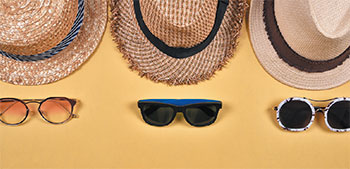 H20 Stat!
H20 Stat!
The temps are climbing higher in the Triangle, which means it's time for exercisers to ask: Am I drinking enough liquids?
For those who work out moderately, swigging as much as thirst dictates during or after workouts usually will prevent dehydration. But if you are overweight, beyond age 65, tend to sweat heavily, or exercise intensely or for a long time, staying well-watered may take extra effort.
In addition to slurping enough, splash water on your face and wipe away sweat, which hinders evaporation. Consider eating your H20 by shopping the produce aisle: Raw fruits and veggies are mostly water.
Watch for symptoms of dehydration: feeling sluggish, dizzy, faint and weak.
 Go Ride a Bike
Go Ride a Bike
With bike lanes, linked greenways and lovely weather in the Triangle, more of us are enjoying life on two wheels. Want to join in?
Whether you plan to commute to work or take a spin with the family, one thing is certain: Biking is really, really good for you.
Here's a rundown on general categories of two-wheelers:
Beach (aka Cruiser) – These heavy framed bicycles are designed for comfort, with curved back handlebars, padded seats and balloon tires.
Fitness hybrid – Its tires get through all kinds of terrain, while the lightweight fame and many gears help you go fast and up hills.
Mountain – These bikes have both front and back shock-absorbing suspension systems plus wide tires with grippy treads perfect for the trails.
Road (aka Racing) – The curved handlebars make you more aerodynamic and the bike is lighter, so you can cover more pavement in less time.
Commuter – Resembling a fitness hybrid or road bike, this model is outfitted with hardware that easily allows a rider to attach bags and other accessories.
Touring – Designed for long journeys, with a wide gear range, they are durable and comfortable as well as capable of transporting baggage.
 Break Out the Sunscreen
Break Out the Sunscreen
Sure, you're enjoying warm days to lunch on the porch in Research Triangle Park, work in your Durham garden or take a walk in Raleigh. Be sure to cover your face in sunscreen before you turn it toward the rays.
The sun can be harmful even during this time of year. In fact, ultraviolet (UV) radiation from sunlight is greatest in North America during the late spring and early summer. And if you've been hiding inside all winter long, your skin may be especially vulnerable to burning.
Adopt these habits now and keep them up through the summer:
- Try to stay indoors or in the shade between the hours of 10 a.m. and 4 p.m., when the beams are the strongest.
- When you go out, dress right. Cover up with a long-sleeved shirt or light jacket to protect your arms and a broad-rimmed hat to shield your face and neck.
- Don't skip sunscreen on cool and overcast days. Clouds let a good deal of UV rays through; up to 80 percent of them reach the Earth.
- Think ahead. Apply sunscreen to exposed areas — face, ears, back of the neck and hands — 15 to 30 minutes before you go out to give it time to start working.
- Reapply sunscreen every two hours if you'll be in the open air that long.